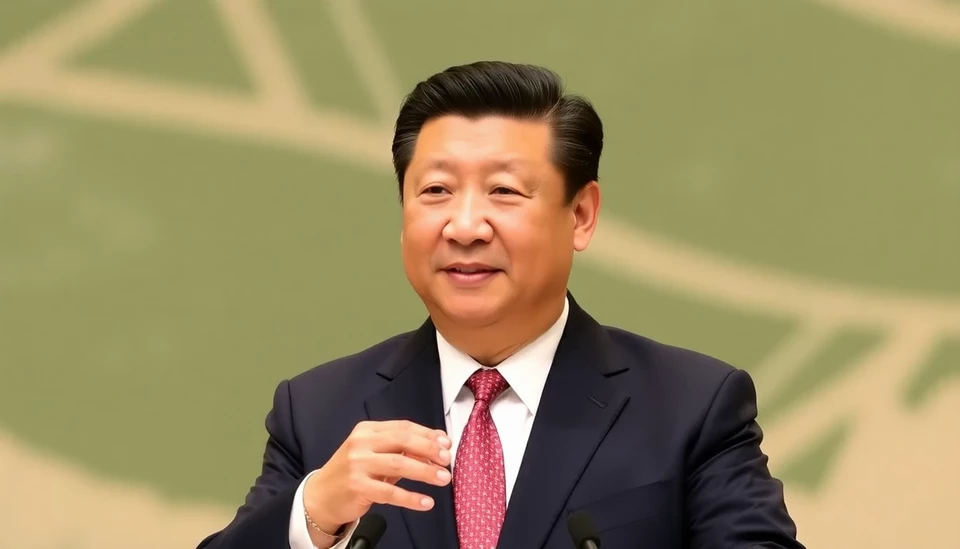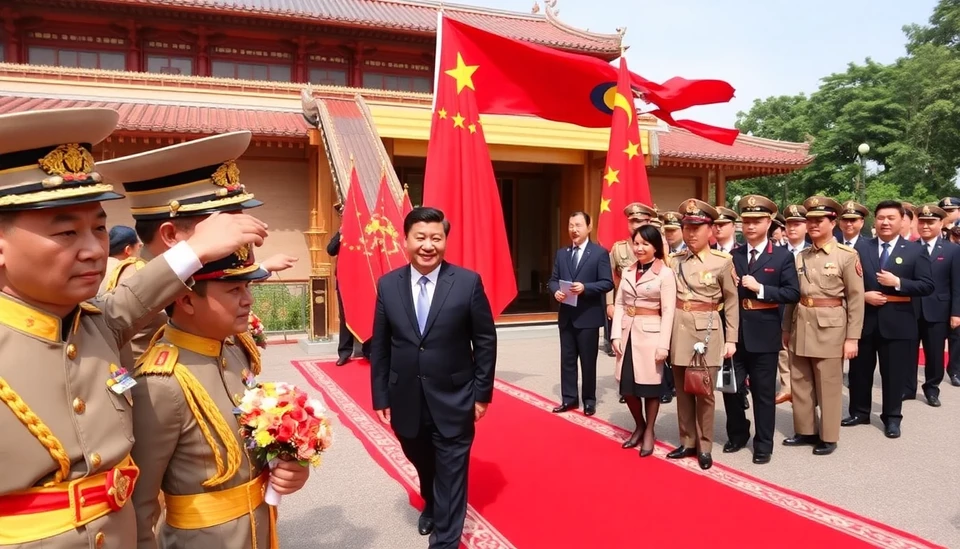
In a bold move to address economic challenges exacerbated by ongoing trade disputes, Chinese President Xi Jinping has unveiled a comprehensive strategy aimed at fully unleashing domestic consumption. This initiative comes in the wake of renewed tariffs imposed by the U.S. under the Trump administration, which have significantly impacted China's export-driven economy.
During a recent address at a national economic forum, Xi emphasized the critical role that consumption plays in stabilizing and invigorating the Chinese economy. He stated that fostering domestic demand is essential for sustaining growth in light of external pressures stemming from escalating trade tensions with the United States. "We must focus on enhancing consumer confidence and improving the overall consumption environment," Xi asserted, highlighting the importance of adaptation in an increasingly volatile global market.
To achieve this ambitious goal, the Chinese government plans to roll out a series of measures aimed at encouraging spending by households and businesses alike. Key components of the strategy include tax reductions and incentives for middle-income earners, as well as a push for financial institutions to extend credit more readily to consumers. Xi's government will also focus on reducing barriers for local businesses, making it easier for them to access resources and distribution channels essential for boosting domestic sales.
This strategy operates against a backdrop of significant economic challenges, including a noticeable decline in exports attributed to U.S. tariffs on Chinese goods. The tariffs introduced during the Trump presidency have aggravated an already fragile economic situation in China, prompting fears of a slowdown. By prioritizing consumption, Xi aims to pivot away from a reliance on exports and develop a more sustainable economic model grounded in domestic growth.
Moreover, Xi's initiative is not solely focused on immediate economic measures but is also envisioned as part of a long-term strategy to enhance China's competitiveness on the global stage. By embedding consumer-oriented growth in the national policy framework, Xi hopes to insulate the Chinese economy from future external shocks and changing geopolitical dynamics.
Experts have expressed cautious optimism regarding the effectiveness of Xi's plan. While the ambition to stimulate consumption is commendable, they caution that implementing these changes may prove to be a complex and challenging endeavor. Potential obstacles include ingrained cultural attitudes towards savings and consumer spending, as well as structural issues within China’s economy that could impede growth.
As the situation evolves, all eyes will be on how Xi's administration navigates these challenges and evaluates the impact of both domestic policies and international relations on China's economic trajectory. The unfolding narrative of Xi's bold pledge to unleash consumption presents a significant chapter in the ongoing saga of U.S.-China trade relations and economic policymaking.
With tariffs forming a persistent backdrop and consumption acting as a possible beacon of hope, the global community is keenly observing how China adapts and evolves in a rapidly changing landscape.
#XiJinping #EconomicGrowth #TradeRelations #Consumption #Tariffs #ChinaEconomy #DomesticDemand #ConsumerConfidence #USChinaTrade #GlobalEconomy
Author: Laura Mitchell




